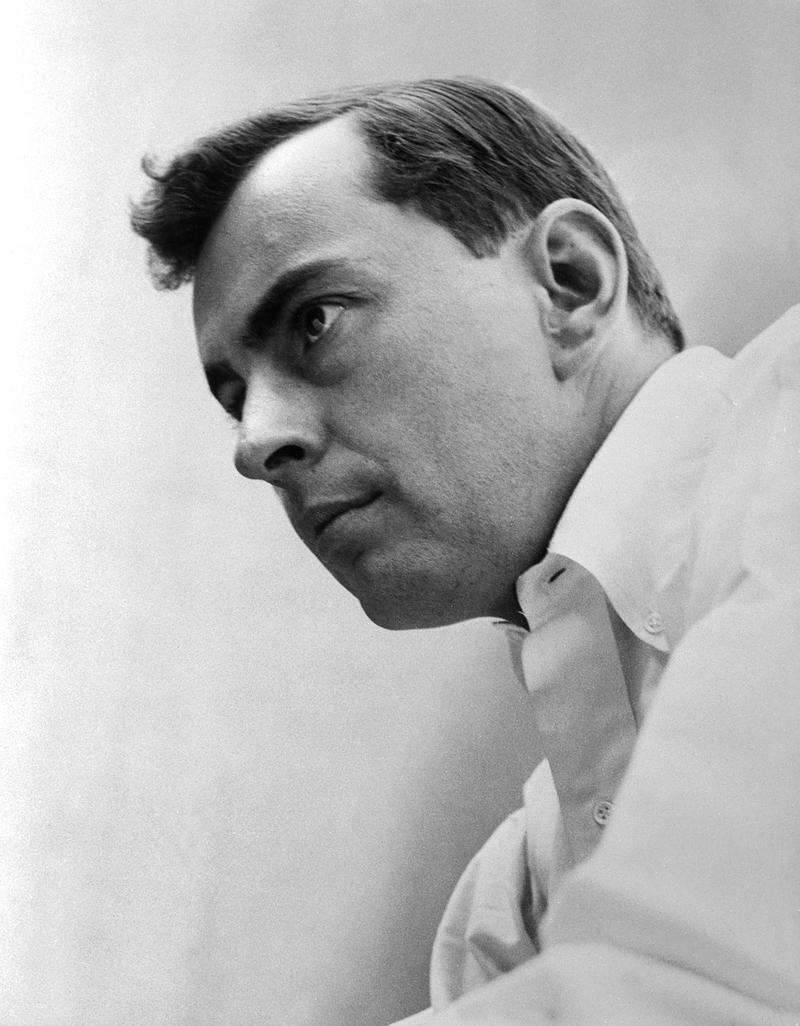Gore Vidal's Historical Novel 'Julian' and Its Modern Parallels

"I can talk for an hour without notes, but for 15 minutes, I have to read it. I shall look up occasionally to give an air of spontaneity." Thus, Gore Vidal begins one of his customarily suave and witty speeches, this one delivered at a Books and Authors Luncheon held on November 30, 1964.
After his Broadway success with "The Best Man" and subsequent strong (but ultimately unsuccessful) run for Congress, Vidal had returned to fiction with the historical novel Julian, about the life of the Roman emperor Julian the Apostate. Here, he describes his 10 years of research for the book, arguing that, paradoxically, when imagining, one cannot play fast and loose with the facts because only "by remaining absolutely accurate in detail can one invent a good deal in spirit." Many people, he notes, compare the novel's description of decadent fourth century Rome to the condition of the United States today, holding that "…if Elizabeth Taylor gets married one more time the Red Chinese will invade and conquer us." But for him, the main historical thrust of the book is the rise of Christian absolutism, something Julian opposed. Christianity's unwillingness to accept diversity in belief, he argues, was new to the Ancient World and had a profound impact on European history. It goes a long way to explaining why even now "we are so much hated in so many parts of the world." Julian, by contrast, is held up as an admirable example of intellectual tolerance. "'He will not even allow us to become martyrs!' shouted one angry bishop." As for those who compare this country to Rome: "We are the descendants of the barbarians," Vidal points out, "not the civilized."
Few writers have assumed the role of Man of Letters more successfully than Vidal. Not only has he made significant contributions to literature in almost every genre, but as a public figure he has elevated the level of discourse in an age when the pressure most media outlets exert has been in the opposite direction. With humor and intellectual rigor, he upholds the nonacademic, nonestablishment attitudes one associates with "free-thinking" Americans of an earlier time.
Born in 1925, Vidal was descended on both sides from families intimately involved in the political power structure of the country. Most notably, his maternal grandfather was Sen. Thomas Gore, of Oklahoma. During World War II, still a teenager, he suffered severe frostbite while serving in the Aleutian Islands. During his recuperation, he finished a novel, Williwaw (1946), which shows an extraordinarily precocious talent. Determined to become a writer, Vidal published extensively during the next several years. He claimed, however, that his sales were hurt by The City and the Pillar (1948), one of the first explicitly gay novels in American literature.
…in 1948 The New York Times would not advertise it and no major American newspaper or magazine would review it or any other book of mine for the next six years. Life magazine thought that the greatest nation in the country, as Spiro Agnew used to say, had been driven queer by the young army first mate they had featured only the previous year, standing before his ship.
Determined to attain economic independence, Vidal turned first to writing (under the pseudonym Edgar Box) three still highly regarded mysteries, and then to television and movie scripts. He also ran for the House of Representatives as a Democrat-Liberal in a highly Republican district. In the 1960 election he received more votes than John F. Kennedy.
After this more "public" period, Vidal moved to Rome, where he published the above-mentioned Julian, followed by a series of bitterly satiric novels, including the best-seller Myra Breckinridge (1968), reflecting, as seen now from a clarifying distance, his experience of his native country. He also established himself as an essayist, commenting on the morals and mores of the time. His famous televised confrontations with the arch-conservative William F. Buckley expanded his fame beyond that of the reading public.
But it was his decision to retell American history, starting with Washington, D.C. (1967), that most critics agree led Vidal to make his most lasting contribution. The remaining volumes are Burr (1973), Lincoln (1984), Empire (1987), Hollywood (1990), and The Golden Age (2000). Speaking of The Golden Age, the critic Harold Bloom wrote:
"Vidal is a masterly American historical novelist...Vidal's imagination of American politics, then and now, is so powerful as to compel awe."
While the author Jay Parini comments on the series as a whole:
The American chronicle itself represents a vivid counter-narrative of American history and politics.
In two recent memoirs, Palimpsest (1995) and Point to Point Navigation (2006), Vidal has left not only a record of his life and times, but striking portraits of the hundreds of famous and influential people he met.
Gore Vidal died on July 31, 2012, at the age of 86.
Audio courtesy of the NYC Municipal Archives WNYC Collection.
